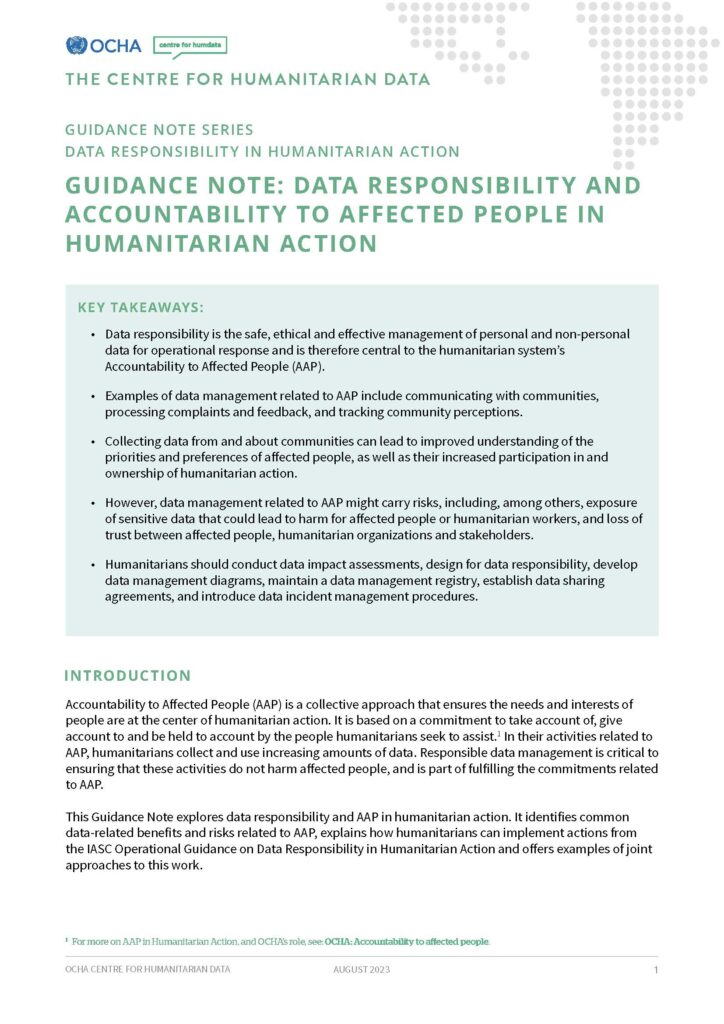Share
This Guidance Note is also available in Arabic, French and Spanish.
Accountability to Affected People (AAP) is a collective approach that puts the needs and interests of people at the center of humanitarian action. It is based on a commitment to take account of, give account to, and be held to account by the people humanitarians seek to assist. Humanitarians do this through a range of activities, and increasingly use digital channels to engage with communities. Data responsibility is critical to ensuring that data management activities do not harm affected people.
The Centre has developed a Guidance Note to help identify common data-related benefits and risks related to AAP. It explains how humanitarians can implement actions from the IASC Operational Guidance on Data Responsibility in Humanitarian Action to ensure accountability and offers examples of joint approaches to this work.
 The Centre, together with key partners, is publishing a series of guidance notes and tip sheets on Data Responsibility in Humanitarian Action to provide guidance on specific issues, processes and tools for data responsibility in practice. The guidance notes and tip sheets published in 2022-2023 have been made possible with the support of the Government of Switzerland.
The Centre, together with key partners, is publishing a series of guidance notes and tip sheets on Data Responsibility in Humanitarian Action to provide guidance on specific issues, processes and tools for data responsibility in practice. The guidance notes and tip sheets published in 2022-2023 have been made possible with the support of the Government of Switzerland.
Read the other guidance notes on Statistical Disclosure Control, Data Incident Management, Data Responsibility in Public-Private Partnerships, Humanitarian Data Ethics, Data Impact Assessments, Data Responsibility in Cash and Voucher Assistance, Responsible Data Sharing with Donors, Responsible Approaches to Data Sharing, Data Security in Operational Data Management and the Implications of Cyber Threats for Humanitarians here. The notes are also available in Spanish and in French.
For more on data responsibility in humanitarian action, visit the Data Responsibility page on the Centre’s website or contact our team at centrehumdata@un.org.